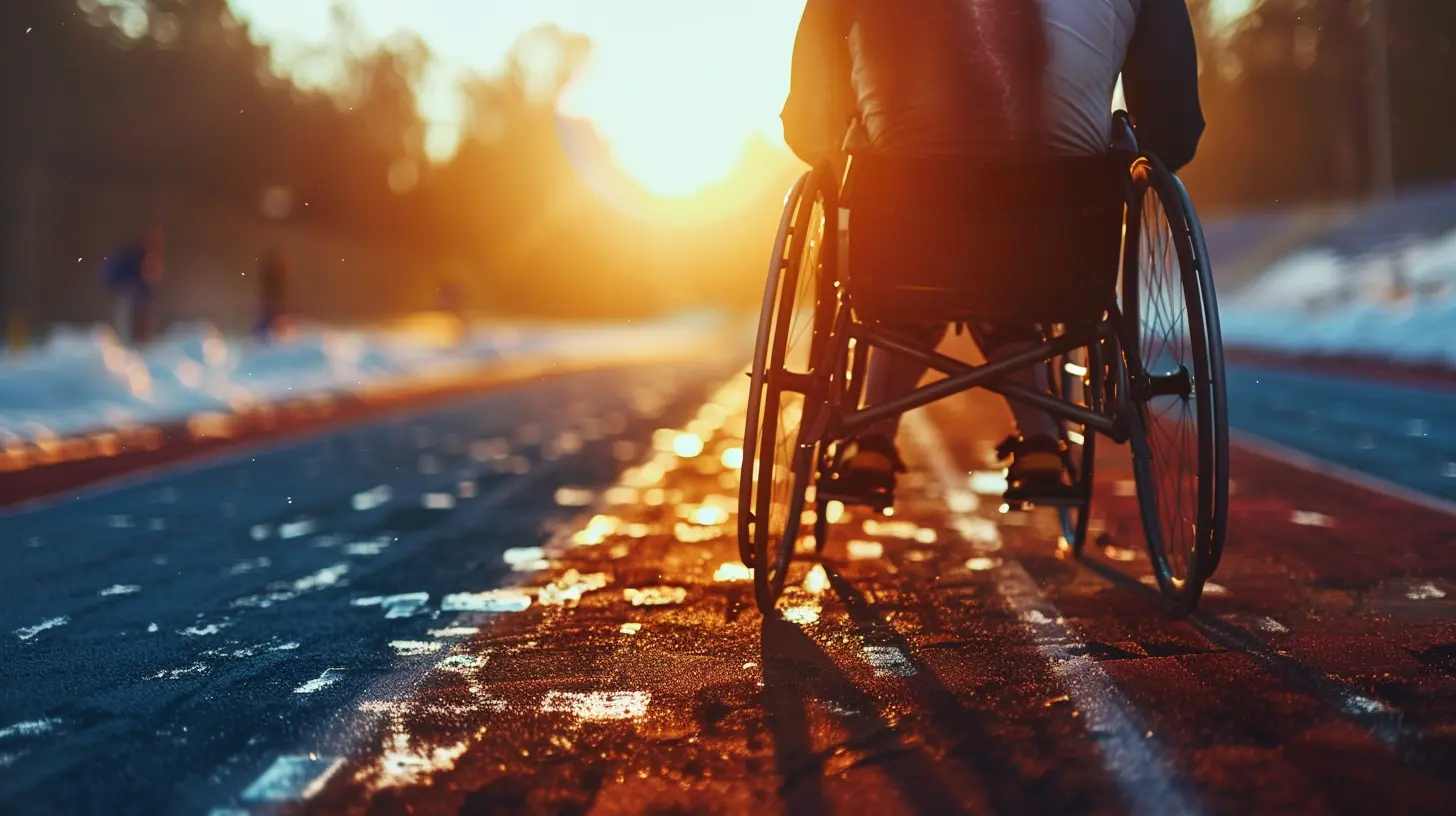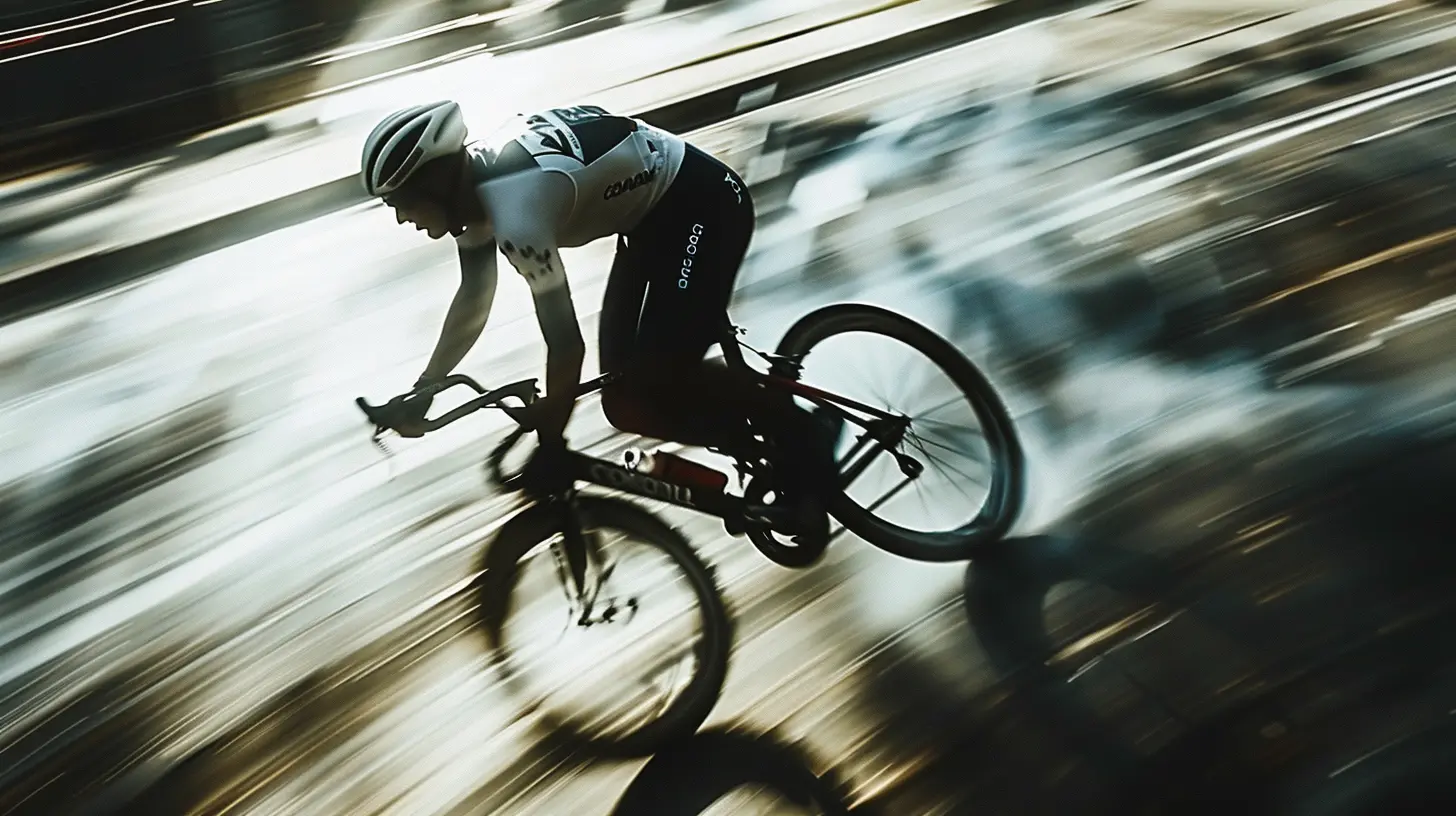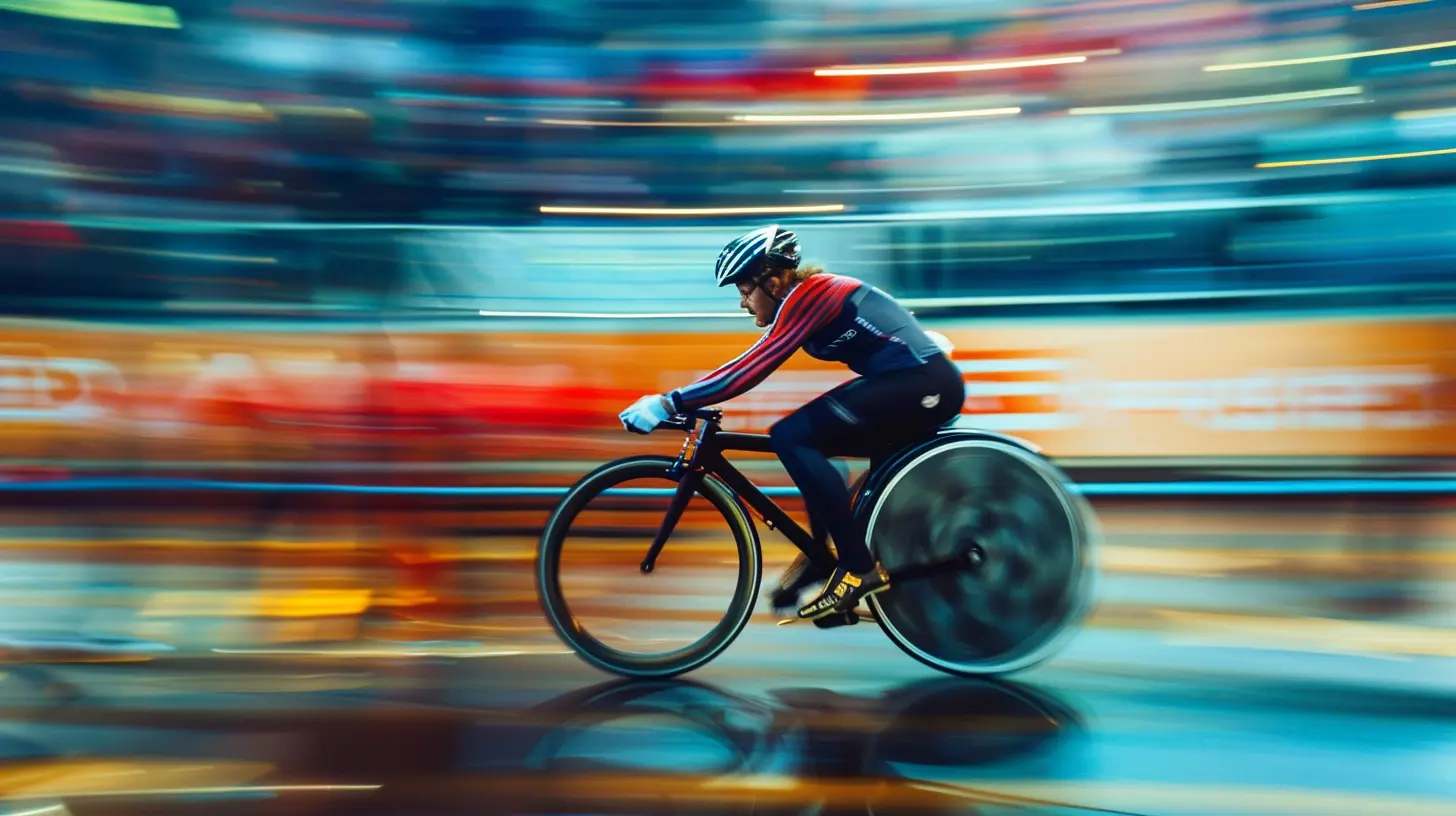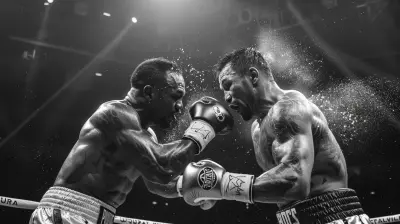Doping and the Paralympics: A Growing Concern
1 November 2025
Let’s face it—when most people hear about doping in sports, they immediately think of high-profile cases in the Olympics, cycling, or professional baseball. But here's the twist no one talks about enough: doping isn't just a problem in able-bodied sports. It's creeping into the Paralympic world too, and honestly, it's raising some serious eyebrows.
In this article, we’re going to shine a light on an uncomfortable, yet super important, topic—doping in the Paralympics. We’ll dive into how it started, why it’s happening, who’s responsible, and what’s being done to clean things up. So buckle up, because this conversation is long overdue.
What Is Doping, Anyway?
Alright, if we're going to talk about doping, let's make sure we're on the same page. Doping is basically the use of banned substances or methods to enhance athletic performance. Think steroids, hormones, blood transfusions—you name it. These substances help athletes build muscle, recover faster, and compete longer.Sounds shady already, right? It is. And it violates the spirit of fair play, which is the cornerstone of any sporting event—especially one as inspiring and honor-bound as the Paralympics.
Why Should We Care About Doping in the Paralympics?
You might be thinking, “Is it really that common in the Paralympics?” Unfortunately, the answer is yes—and it's becoming more of a problem than most people realize.What makes it worse is that the Paralympics are meant to celebrate resilience, determination, and the human spirit overcoming adversity. When doping enters the picture, it tarnishes all of that good stuff.
Imagine climbing a mountain despite every odd stacked against you—only to find out someone took a helicopter to the top and still claimed the trophy. It's not just unfair. It's gut-wrenching.
The Rise of Doping Cases in Paralympic Sports
While the number of doping cases in the Paralympics is still lower compared to the Olympics, the trend is climbing—and that's what's alarming. According to several anti-doping agencies, violations have been reported across various Paralympic sports like powerlifting, athletics, swimming, and even wheelchair basketball.Take powerlifting, for example. It's a sport where sheer strength is everything. So naturally, it becomes a hot spot for performance-enhancing drug use. Athletes looking for shortcuts often turn to steroids or testosterone boosters, hoping to gain an edge—illegally.
The Unique Complexity of Doping in Para Sports
So here’s the thing: doping in Paralympic sports isn’t just about sneaky shortcuts. It’s way more complicated.Many Para athletes already take medications for legitimate medical conditions. Some of these meds actually contain substances that are on the banned list. That means these athletes have to tiptoe a fine line—balancing their health needs while staying compliant with anti-doping rules.
Plus, the classification system in the Paralympics—used to group athletes based on the nature and severity of their disability—adds another layer of complexity. There have been allegations (and actual cases) where athletes exaggerated their impairments just to qualify in a more favorable class. In a way, that’s a form of doping too—manipulating the system for personal gain.
Wild, right?
Real-Life Cases That Shook the Paralympic Community
Let’s cut the fluff and talk facts.There have been some headline-making cases that shed light on the problem. Russian powerlifter Vladimir Balynets was stripped of his silver medal after testing positive at the 2012 London Paralympics. And he’s not alone. Several other athletes across countries and sports have failed drug tests—some even multiple times.
These cases, while still relatively sparse, pierce right through the heart of what the Paralympics stand for. They leave fans disillusioned and fellow athletes betrayed.
How Doping Undermines the Spirit of the Paralympics
For many, the Paralympics aren’t just about medals or world records. They’re about rewriting the story of what’s possible. These athletes have already battled massive hurdles just to get to the starting line.So when someone cheats—via drugs or other means—it’s more than just a rules violation. It’s a betrayal of every hour spent in rehab, every physical therapy session, and every moment of pain that Para athletes endure.
It’s like someone putting a turbo engine on a bicycle at a Tour de France for amputees. It changes the whole game and insults the struggle.
Why Do Paralympic Athletes Dope?
Good question—and a tough one to answer.Some do it for the gold. The glory, the sponsors, the fame—it’s tempting. Others might feel pressured by coaches or national sports federations chasing international success.
Then there’s the grey area: unintentional doping. Remember those meds we talked about earlier? Some athletes genuinely didn’t know they were taking something banned. They didn’t read the fine print—or weren’t informed in time.
But ignorance doesn’t equal innocence, at least not in the eyes of anti-doping agencies.
The Role of National Federations and Coaches
Here’s where things get murky. Doping doesn’t always start with the athlete. Sometimes, it begins in the training room—with coaches, doctors, and national federations.There have been whispers (and loud accusations) that some countries have turned a blind eye—or worse, actively helped their athletes cheat. Think we’re talking conspiracy theories? Just look back at the Russian doping scandal. It involved not just athletes but also labs, officials, and even government bodies.
So yeah, it’s not always a solo crime. Sometimes, it’s an organized hustle.
What’s Being Done to Stop It?
Not all hope is lost, though.Organizations like the World Anti-Doping Agency (WADA) and the International Paralympic Committee (IPC) are cracking down. They've stepped up testing procedures, implemented stricter rules, and invested in better education programs for athletes.
Out-of-competition testing has become more frequent. Plus, the use of biological passports (which track an athlete’s data over time) is gaining traction. It's like a long-term lie detector for your body.
And here’s the kicker—a lot of athletes are speaking up. The clean ones are tired of losing to cheaters, and they’re demanding change.
Technology and Doping Tests: The Cat-and-Mouse Game
As testing improves, so do the methods to cheat. It’s like hackers and antivirus software—one always tries to stay one step ahead of the other.Micro-dosing, designer steroids, masking agents—there’s a whole dark science to doping. And anti-doping agencies are constantly playing catch-up.
But AI and machine learning are slowly turning the tide. These tools can detect abnormalities better than ever before. Still, it’s a never-ending battle.
Education: The Missing Piece
If you ask me, education might just be the secret weapon in this whole fight. Many Para athletes come from countries that lack proper resources. They may not have access to sports medicine experts or anti-doping seminars.So when they’re handed a "vitamin pack" by their coach, they just trust and take it. That’s risky.
By educating athletes, coaches, and support staff—especially in developing nations—we can cut off the problem at its root. Knowledge, in this case, really is power.
The Moral Dilemma: Is It Even Worse in the Paralympics?
Here’s the brutal truth: doping is always bad. But when it happens in a platform like the Paralympics, it just feels... ickier.Why? Because it exploits something sacred. The Paralympics are a symbol of human endurance and hope. Doping there doesn’t just break the rules—it breaks hearts.
Let’s look at it another way. If the Olympics is about breaking physical limits, then the Paralympics is about breaking spiritual ones. Cheating in that space? It’s almost unforgivable.
So, What Can We All Do?
Support clean athletes. Raise awareness. Demand transparency from federations.And maybe, just maybe, let’s stop worshiping medals and start valuing integrity more. Because at the end of the day, sports should be about character, not chemicals.
Final Thoughts
Doping in the Paralympics isn’t just a sports issue—it’s a human issue. It challenges our notions of fairness, grit, and what it truly means to compete.So let’s keep asking the hard questions and pushing for better systems. The Paralympics should remain a sanctuary for real stories of courage—not artificial stories built on syringes and pills.
Because when one athlete cheats, it’s not just a win that’s stolen—it’s a dream shattered.
all images in this post were generated using AI tools
Category:
DopingAuthor:

Onyx Frye
Discussion
rate this article
1 comments
Nina McNeal
This article raises important questions about integrity in sports. How can we ensure fairness in the Paralympics while supporting athletes with disabilities? It’s crucial to explore solutions that maintain the spirit of competition.
November 16, 2025 at 4:42 AM

Onyx Frye
Thank you for your thoughtful comment! Ensuring fairness in the Paralympics requires a multifaceted approach, including rigorous testing, transparent policies, and ongoing dialogue with athletes and stakeholders to uphold the integrity and spirit of competition.


